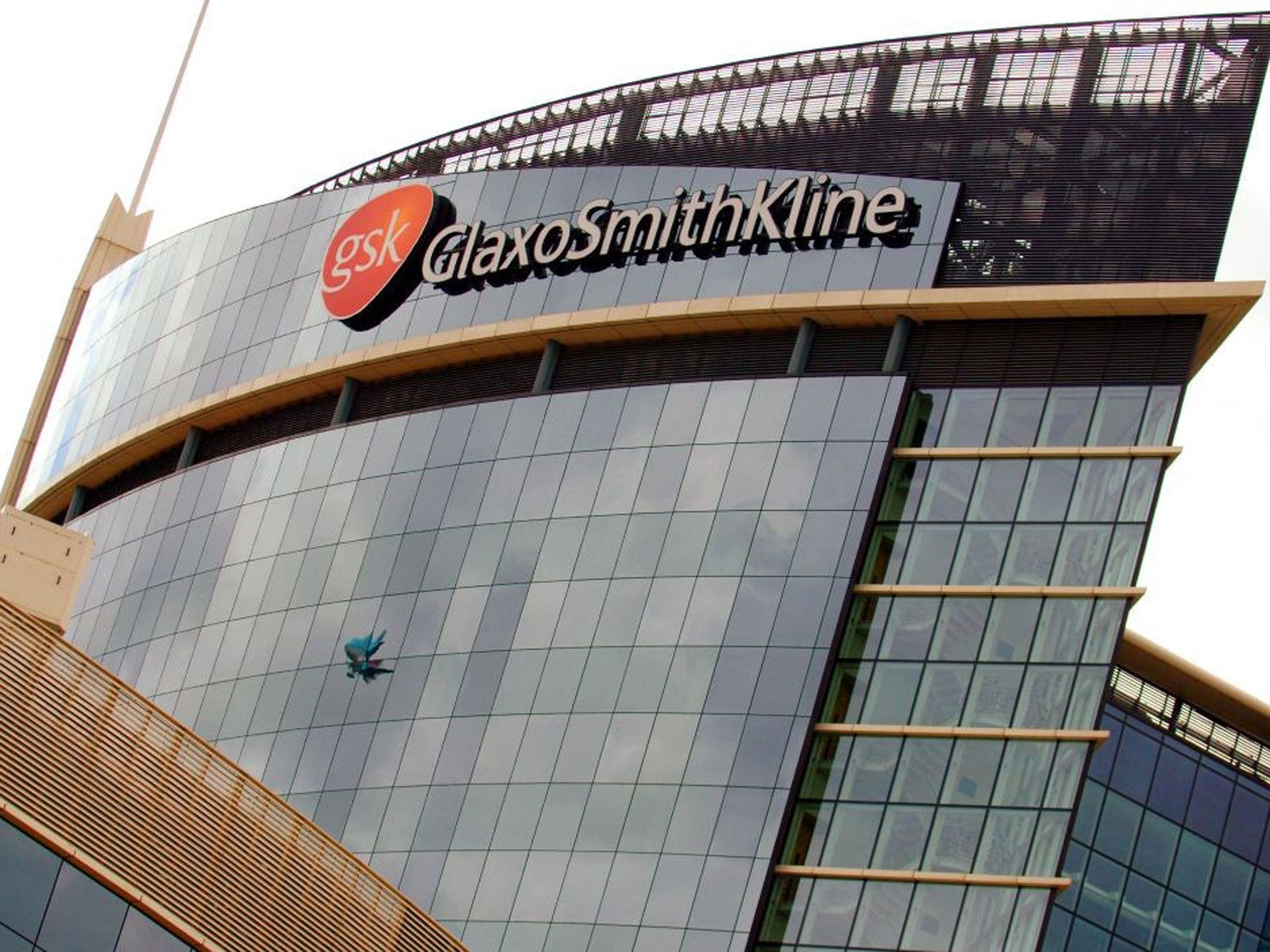Chinese bribery investigation accuses GlaxoSmithLine of being ringleader
Four GSK executives are detained as police investigate bribery scandal

Chinese police accused GlaxoSmithKline of being the “ringleader” in a massive bribery scandal on Monday, involving as many as 700 middlemen and ¥3 billion (£320m) in bribes over the last six years.
Four GSK executives have been detained amid claims that they bribed Chinese officials, doctors and hospitals to boost sales illegally and raise prices of medicines. Police said GSK employees received bribes “of a sexual nature” as well as cash bribes from middlemen travel companies.
“We found that bribery is a core part of the activities of the company,” said Gao Feng, head of the economic crime investigation division of China’s Ministry of Public Security. “To boost their prices and sales, the company performed illegal actions.”
The detainees are Chinese nationals employed by GSK in China as head of compliance, vice-president in charge of operations, commercial development manager and human resources director, Mr Gao said.
He added that the British head of Glaxo’s business in China, Mark Reilly, had left the country on 27 June, after the inquiry was announced. “You better ask him yourself why he has left China,” Mr Gao said. “We did not take any measures to stop his departure.”
It is understood that Mr Reilly returned to the UK for a planned business meeting, but is now staying in the UK to work with Glaxo’s China leadership team from afar, as well as with management in the UK.
Mr Gao added that investigators had not “received any information from the UK headquarters” and “we are wondering why”.
Glaxo responded that it was “deeply concerned and disappointed by the serious allegations”. A spokesman added: “Such behaviour would be a clear breach of GSK’s systems, governance procedures, values and standards. GSK has zero tolerance for any behaviour of this nature. GSK shares the desire of the Chinese authorities to root out corruption. We will co-operate fully with the Chinese authorities in the investigation of these new allegations.
“We are reviewing all third-party agency relationships. We have put an immediate stop on the use of travel agencies that have been identified so far in this investigation, and we are conducting a thorough review of all historic transactions related to travel agency use. GSK fully respects the laws and regulations in China and expects all staff to abide by them.”
Last week the company said it had investigated bribery allegations and found no evidence of wrongdoing.
Mr Gao said: “Just like criminal organisations always have a ringleader, in this criminal scheme GSK is the ringleader. GSK is the main party responsible. It is like a criminal organisation, there is always a boss. In this game, GSK is the godfather.
He said there were “some clues” of similar activities by other foreign pharmaceutical companies, “but we haven’t ascertained whether these were illegal”.
Bitter pill: how the case developed
28 June: Police in Changsha say GSK executives are being investigated for alleged “economic crimes”.
4 July: China’s drug price body, the National Development and Reform Commission, launches inquiry into medicines costs, examining dozens of drugmakers including Glaxo.
7 July: The Wall Street Journal reports that a whistleblower notified GSK’s board of allegations that its China sales staff bribed doctors to prescribe Botox over the past year. GSK says it investigated and found no evidence of bribery or corruption.
11 July: China’s Public Security Bureau accuses GSK of bribing doctors, hospitals and officials to prescribe their drugs, and says GSK executives admitted using bribes.
13 July: GSK halts tests of an experimental multiple sclerosis medicine on human volunteers after fraud claims in a scientific paper led it to fire Jingwu Zhang, head of its neuro-immunology centre in Shanghai.
15 July: Police in China release more details on the bribery allegations and say four GSK executives had been detained.
Subscribe to Independent Premium to bookmark this article
Want to bookmark your favourite articles and stories to read or reference later? Start your Independent Premium subscription today.

Join our commenting forum
Join thought-provoking conversations, follow other Independent readers and see their replies